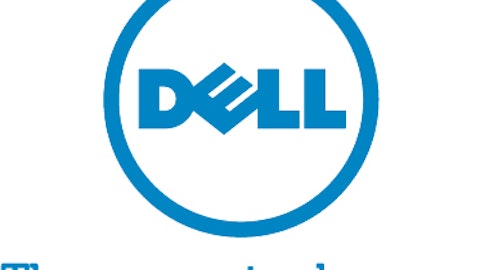The ongoing recovery of the housing market raised the concern that we are heading toward another bubble that could burst in the near future. In a recent article in The New York Times, the authors made the argument that big Wall Street firms such as The Blackstone Group L.P. (NYSE:BX) might be behind the latest recovery of the housing market. Let’s examine this assessment and analyze the recent developments in the housing market.
Mortgage rates rise; applications decline
The main issue that raises concerns regarding the future growth of housing market is a development in the mortgage market. The latest news of the sharp drop in mortgage applications suggests that the demand for housing is sliding. The drop in applications was partly stemmed by the recent rise in mortgage rates: Since the beginning of May, 30-year mortgage rates rose by nearly 0.5 percentage points. One of the reasons for the recent rise in mortgage rates may have been the latest speculation around the Fed’s future monetary policy.
The Fed’s policy
Since the end of 2012, every month the Fed has been buying $40 billion of mortgage-backed securities and $45 billion a month of long-term Treasuries. These actions may have contributed to the rally of the housing market as they lowered the long-term securities’ and mortgage rates. But in the past several weeks, more investors began thinking that the Fed may taper its asset-purchase program.
At the upcoming FOMC meeting in mid-June, the Fed might announce this tapering. In such a case, long-term bond yields are likely to keep rising, which will lower the demand for purchasing houses. In the meantime, the housing market is showing mixed signals regarding its progress.
Housing starts fall; new home sales rise
According to a recent report by the U.S Census Bureau and U.S Department of Housing and Urban Development, during April, housing starts sharply fell by 16.5% and reached 853,000. This number is still 13.1% higher than the same time in 2012.
On the other hand, the number of new homes sold also increased in April: Sales of new houses rose by 2.3% compared to March and by 29% compared to April 2012.
Based on the recent developments in the housing markets it seems that home builders are slowing down their activity while the demand for housing continues to rise.
The slowdown in housing starts has yet to reflect in the financial reports of leading home builders’ financials reports such as D.R. Horton, Inc. (NYSE:DHI): In the first quarter of 2013, D.R. Horton’s revenue from home sales grew by 47% (year-over-year). Moreover, the company’s gross profit from home sales grew from 17.5% in the first quarter of 2012 to nearly 20% in the first quarter of 2013. The sharpest gain was in the West: Revenue spiked by 82% (year-over-year). This region also had the highest profit margin among all other regions as seen in the chart below.

Another home builder that benefited from the rally in the housing market is NVR, Inc. (NYSE:NVR): The company’s revenue also spiked by nearly 28% and its operating profit margin rose to 7.1% in the first quarter of 2013. Despite the recent drop in mortgage applications in the first quarter of 2013, NVR, Inc. (NYSE:NVR) recorded a 13% gain in mortgage closed-loan production; operating income from mortgage banking spiked by 40% (year-over-year).
Despite the sharp rise in these companies’ revenue, investors remain weary of the future growth of these companies: During the past month, shares of D.R. Horton, Inc. (NYSE:DHI) tumbled by nearly 18%; shares of NVR, by 5.2%.
The recent drop in housing starts suggest a slowdown in home builders’ activity in the past month. This slowdown could reflect in the coming quarterly reports of D.R. Horton, Inc. (NYSE:DHI) and NVR, Inc. (NYSE:NVR). Moreover, if the Fed reduces its asset-purchase program the demand for housing is likely to fall, which will also weigh on the future revenue growth of these companies.
But is this recovery driven by Wall Street?
Home builders aren’t the only companies that benefited from the sharp rise in the housing market: Investment companies such as The Blackstone Group L.P. (NYSE:BX) also show sharp gains: The company’s revenue grew by more than 30% in the first quarter of 2013 (year-over-year); its operating profitability also spiked from 17.7% in the first quarter of 2012 to 33% in the first quarter of 2013. Most of the growth in revenue is due to the rise in The Blackstone Group L.P. (NYSE:BX)’s real estate investments.
Blackstone has purchased more than 26,000 single-family houses in nine states including in Arizona and Nevada – states that suffered severely in the recent housing crash. The company has been renting out these apartments. The rent index rose in the past year by 2.7%. This increase reflected in the rise in the company’s revenues in real estate. But if the housing market slows down and rents dwindle, The Blackstone Group L.P. (NYSE:BX)’s growth in revenue will similarly weaken.
Based on the above, the company could be among the driving forces behind the recent rise in home sales. On the other hand, the recent drop in mortgage applications could suggest fewer people are purchasing homes. In such a case, perhaps part of the rise in the housing market is driven by investment companies and not actual demand for homes by families. This scenario could lead to a bubble-burst down the line. In turn, investment companies such as The Blackstone Group L.P. (NYSE:BX) will suffer from such an event.
Take away
The drop in demand for mortgages and rise in mortgage rates suggest the rise in the housing market is less driven by private buyers and more by real estate investors such as The Blackstone Group L.P. (NYSE:BX). The sharp recovery of the housing market might reach a halt if and when the Federal Reserve starts tapering its current asset- purchase program. If the sharp recovery in the housing market slows down, many home builders and investment companies in real estate will be adversely affected from this development.
The article Is Wall Street Behind the Housing Rally? originally appeared on Fool.com and is written by Lior Cohen.
Lior Cohen has no position in any stocks mentioned. The Motley Fool has no position in any of the stocks mentioned. Lior is a member of The Motley Fool Blog Network — entries represent the personal opinion of the blogger and are not formally edited.
Copyright © 1995 – 2013 The Motley Fool, LLC. All rights reserved. The Motley Fool has a disclosure policy.






